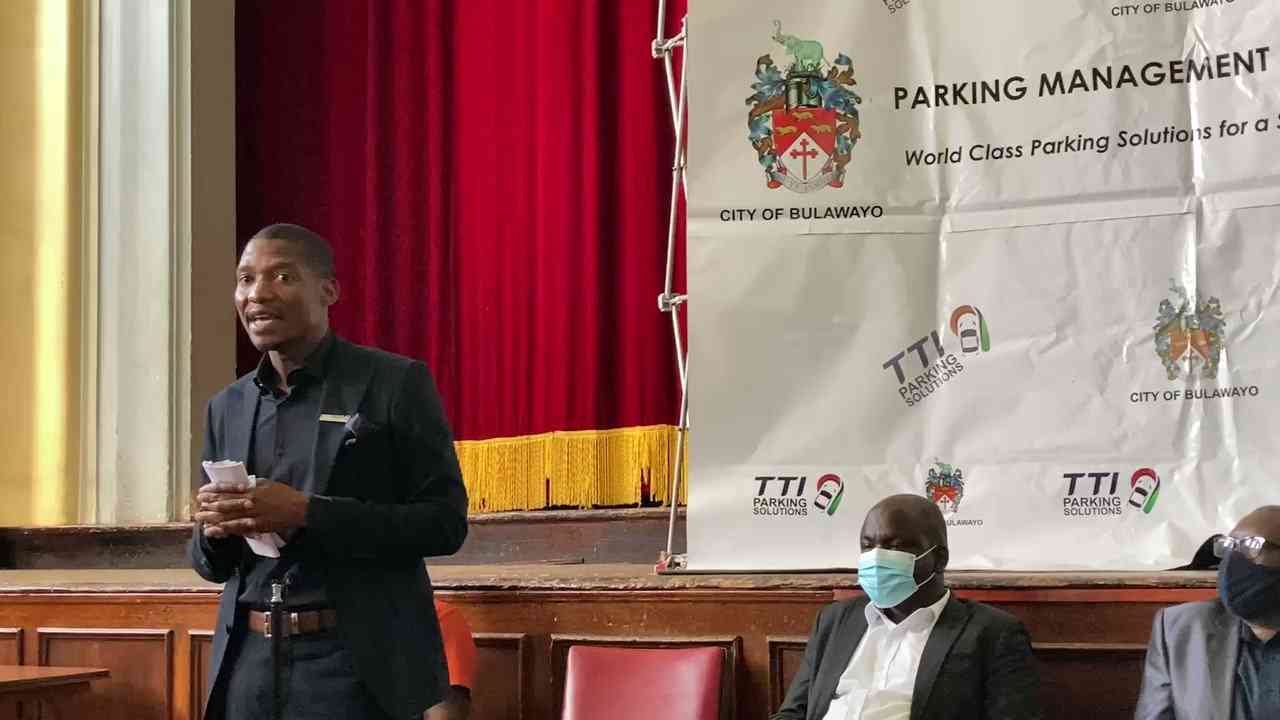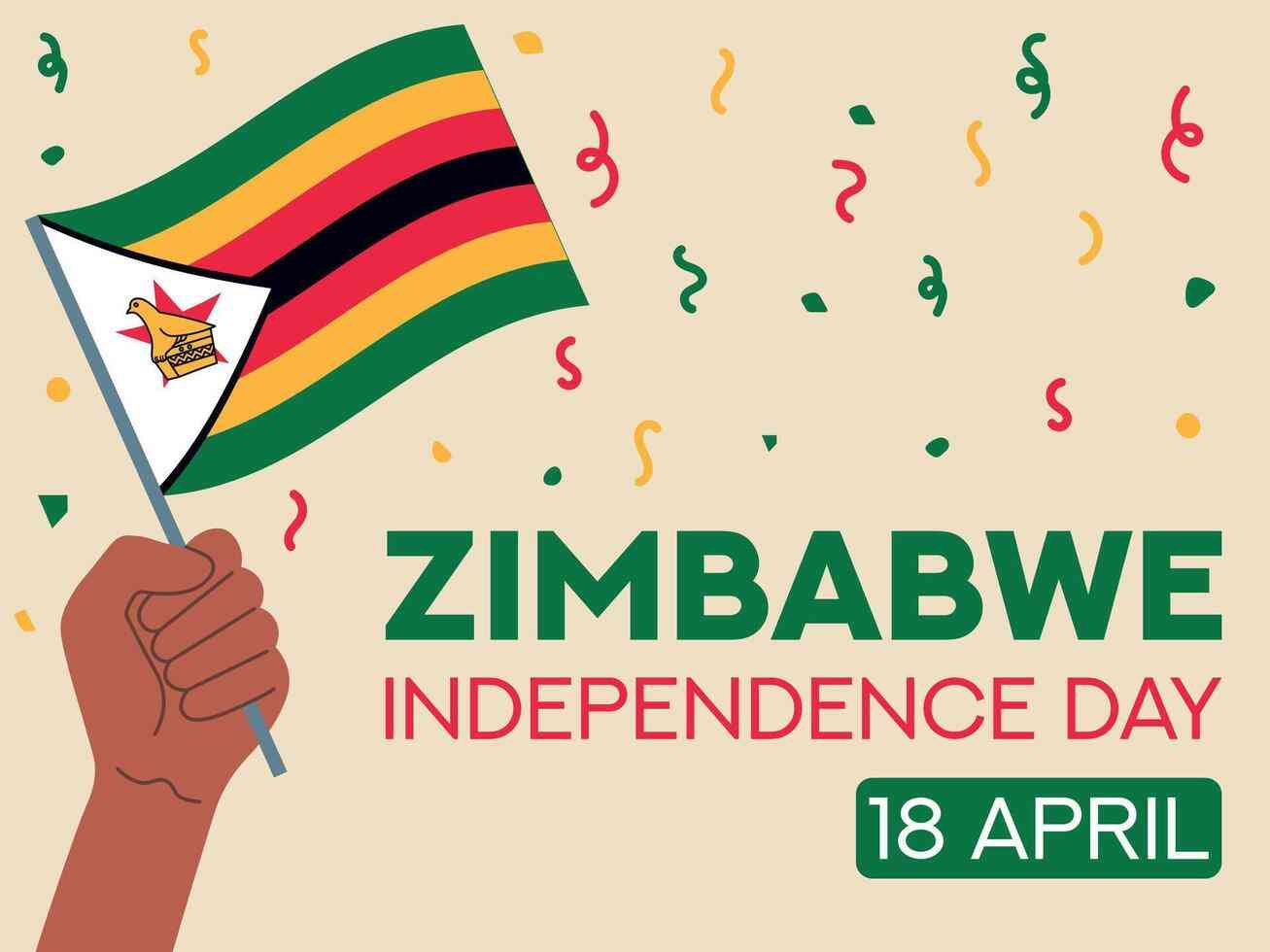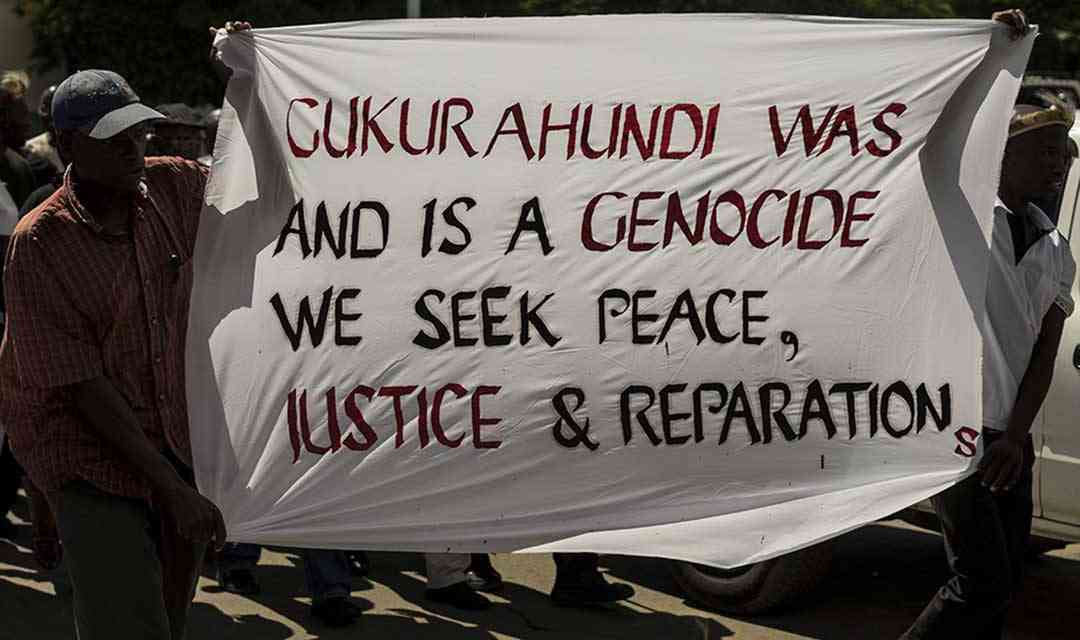
Social media went abuzz last week after the director of a Bulawayo vehicle parking management company, Lizwe Mabuza (pictured), turned up for a meeting at the City Hall in a Rolls Royce Cullinan worth US$400 000.
Tendy Three Investments (TTI) director Lizwe Mabuza’s vehicle had personalised United Kingdom licence plates, LC. Bulawayo City Council contracted TTI in 2022 to manage the parking system under a US$2 million public-private partnership tender.
Our news editor Nqobani Ndlovu (NN) caught up with Mabuza (LM) to talk about the vehicle parking tender that has caused a storm with some stakeholders calling for its cancellation.
NN: Tendy Three’s parking management tender has faced criticism. How do you respond to allegations of irregularities?
LM: TTI won the parking management tender through a thorough and transparent process.
We followed all the proper procedures, which included an extensive review and endorsement by the Zimbabwe Investment Development Agency (ZIDA) and ultimately the cabinet of Zimbabwe.
Additionally, the City of Bulawayo conducted its due diligence, ensuring that all aspects of the tender process adhered to regulatory standards and best practices.
We are confident of the validity and authenticity of the entire process. We encourage any interested parties to reach out to these institutions for further confirmation.
Our commitment to integrity and professionalism in our operations is paramount, and we stand by our track record. We are always open to addressing concerns constructively to ensure clarity and trust
NN: Did Tendy Three have any prior relationships with city officials?
LM: No, TTI, like many other companies we responded to an advertisement for the tender and underwent the selection process in the same manner as all other applicants.
NN: How much did Tendy Three pay for the tender, and what’s the revenue-sharing model?
LM: There was no payment done for the tender, TTI was appointed as the technology partner to invest in the parking management project and below are the four revenue streams and the revenue sharing model is structured as follows: 70/30 for parking fees in favour of TTI, 50/50 for clamping, 70/30 for towing services in favour of TTI, and 50/50 for impound.
NN: How much revenue does TTI generate annually, and where does it go? Are there any financial records ready for scrutiny?
LM: Currently, TTI is in the process of scaling its operations; we started with 10 marshals and fewer than 300 parking bays, and we have expanded to 5,300 tolling parking bays, with aspirations to reach 7,200 or more in the near future.
Revenue generation for our first year was lower than our second year, and we anticipate that by the end of the third year, revenue will exceed that of the previous year.
However, a comprehensive overview of our revenue will be available only once the project has been fully rolled out.
In terms of revenue allocation, the majority is directed to the City of Bulawayo.
Additional significant portions are allocated to salaries and regulatory expenses, including VAT and NSSA contributions.
Furthermore, we invest substantially in data management and personal protective equipment (PPE) for our staff.
NN: Have there been any audits or investigations into Tendy Three’s operations?
LM: TTI operates under a well-defined governance structure that involves collaboration between TTI and the City.
This framework ensures effective management and oversight of the project.
For instance, the project steering committee, responsible for overseeing operations, is chaired by a project manager from the city and includes representatives from all relevant departments.
This committee meets weekly to ensure the project is functioning as intended.
Additionally, the project management committee, chaired by the city’s finance director, convenes regularly to review project performance and make recommendations for improvement.
Furthermore, as part of our commitment to transparency and accountability, the project is contractually obligated to undergo audits by reputable external firms.
To date, two external audits have been completed, providing independent assessments of our operations.
NN: Residents have complained about parking fees and attendant conduct. How do you address these concerns?
LM: We take all legitimate concerns raised by residents very seriously and work closely with the city to address and rectify any public grievances as they arise.
In a large workforce, it’s not uncommon for a few individuals to fail to meet our standards.
We are committed to continuous training and have implemented disciplinary measures, including the termination of several staff members for various offenses, including misconduct.
Regarding parking fees, we have actively listened to feedback from residents and implemented several interventions to alleviate their burdens, including:
- Simplification of fee structure: Initially, our system had multiple zones with different time rates — 30 minutes at US$1, one hour, and two-hour zones. Due to the feedback we received, the city and TTI responded by abolishing the zoning system and introducing a single-zone system with a standard rate of US$1 per hour.
- Transferability of parking time: Originally, the ability to transfer parking fees from one bay to another was not an option. However, we heard residents’ requests for this flexibility, and after system adjustments, we are now the only service in the country that allows transferability of parking time from one bay to another until the time expires.
- Discount packages for long-term Use: Residents highlighted the challenge of using parking bays for extended durations, often a full day for business purposes, which could lead to exorbitant costs (e.g., US$9 for a nine hour day). In response, we implemented several discount options:
*Monthly Rate: US$90 (55% discount)
*Bi-weekly Rate: US$50 (50% discount)
*Weekly Rate: US$30 (45% discount)
*Daily Package: US$4 for NINE hours of parking (55% discount)
*Weekend Package: US$2 for five hours on Saturdays (60% discount)
We are proud to say that we are the only company in the country providing such extensive discounts.
We remain committed to responding to the needs of residents and improving their experience with our services.
NN: How do you ensure parking accessibility and affordability to everyone?
LM: As mentioned earlier, our parking fee packages are designed to be among the most competitive available, with options that include daily, weekly, bi-weekly, and monthly rates offering discounts of up to 55%.
These flexible packages ensure that parking remains affordable for all residents.
In addition to our pricing strategy, one of our key objectives in parking management is to facilitate the rotation of vehicles in parking bays.
This rotation allows for increased availability of parking spaces, making it easier for everyone to find accessible spots when they need them.
By combining affordability with effective space management, we are committed to ensuring that all residents have the opportunity to access parking without added stress or financial burden.
NN: There are allegations that Tendy Three has ties to government and ex-city officials. How do you respond to that? How will Tendy Three address potential conflict of interest?
LM: We want to clarify that neither our directors nor any members of our senior or junior management team have had any ties to government and non-are former city officials. Therefore, we firmly assert that no conflicts of interest exist. We are dedicated to maintaining the highest standards of integrity and transparency across all our operations.
NN: Will you disclose all stakeholders and shareholders?
LM: We are committed to transparency regarding our business operations.
The stakeholders involved in the project are limited to the city council and TTI, and revenue-sharing arrangements are structured according to the predefined ratios mentioned previously.
NN: Are you open to an independent investigation or audit?
LM: The contract has established robust controls and procedures for managing our operations, and our processes are designed to ensure transparency and accountability.
Experts regularly evaluate the project’s operations, and we work closely with the City on a daily basis to ensure everything is running smoothly.
Both TTI and the City have real-time access to system reports, which further reinforces our commitment to transparency.
NN: What is your response to allegations that TTI is a looting scheme and is not contributing to the development of the city’s roads and parking bays?
LM: This is a valid concern, and we appreciate the opportunity to clarify our position. It’s important to emphasise that the revenue TTI generates is significantly less than what is paid to the city.
TTI shares revenue with the BCC at a top-line level, meaning it is calculated before deducting operational expenses, which include salaries, statutory obligations, data management, PPE, and other necessary costs.
The figure of 70% that some perceive as profit has not accounted for these expenses, which can exceed 50% of that revenue.
TTI has a vested interest in the city’s infrastructure, including the maintenance of roads and parking bays, as their condition directly affects our operations. If contractual arrangements allowed, TTI would be open to a model where we take 30% of the revenue and have the city retain 70%, thereby mitigating expenses and allowing more funds for the city’s use.
Currently, the project is not fully rolled out, which means that we have not realised its full revenue potential. For instance, parking marshals may spend an entire day in certain areas and only collect revenue equivalent to 20 hours of parking, resulting in an average occupancy of around 25%. This situation is exacerbated by nearby free parking on S. Parirenyatwa Street, which limits our revenue potential there.
TTI serves mainly as a technology partner, and we recognise that the state of the roads directly impacts our profitability. To address this, we have proposed a partnership with the city to establish a bitumen plant for repairing road infrastructure, acknowledging that maintaining parking bays is one of the city’s responsibilities.
We commend the city’s efforts in ring-fencing funds to improve parking bays and roads, and we have seen major road work being done on G. Silundika, H. Chitepo, and other areas to address potholes, which reflects their commitment to enhancing our city’s infrastructure.
NN: What message do you have for Bulawayo residents regarding transparency and accountability?
LM: The city council receives real-time reports regarding revenue generation, which are compiled minute by minute in the system and presented to relevant committees. These reports are then published for public access, underscoring the value we place on being transparent and accountable to the community.
We want to emphasise that the funds generated are reported to the appropriate council committees, and the minutes of these meetings are also made publicly available. It is important for residents to know that TTI has remitted more than $1.6 million USD to the City, along with many millions in local currency over the past two years. We are dedicated to maintaining an open line of communication with the residents of Bulawayo and remain committed to conducting our business in a manner that reflects the highest standards of accountability and transparency.
NN: How do you navigate challenges in Zimbabwe’s business environment?
LM: Operating within the central business district has enabled us to build strong relationships with the local business community. Our services have not only aided in reducing congestion but have also contributed to minimising vehicle theft, thereby enhancing the overall business environment.
As a company, we adhere to all legal requirements, which is why we recognize all currencies authorised by the Reserve Bank of Zimbabwe (RBZ). We acknowledge that fluctuations in exchange rates are an inherent part of the business landscape here. We support the monetary and fiscal policies of our government, as these efforts are essential for achieving stability in our economy.
We encourage all local businesses to adopt a patriotic approach to monetary policies. While it’s natural to prefer the US dollar, no country can thrive without its own currency. For a currency to gain strength, it must command demand and build confidence among its users, which is vital for stabilizing our economic environment.
We embrace all currencies that have been legalised by the RBZ, even amidst market volatilities that impact all businesses. Our hope is that, through collaboration and mutual support, we can create a smoother business environment. Investment from patriotic diasporans such as ourselves who understand the dynamics of our country and economy offers a unique advantage, as we work together to navigate these challenges.
NN: What expansion plans or innovative solutions are in the pipeline?
LM: Our primary expansion plan is to cover the entire city with parking bays, aligning with the scope of our project. In addition to this, we are developing an innovative self-service solution and prepaid functionality that will integrate into mobile devices. This will allow users to see available parking spaces and make payments without needing to interact with a parking marshal, streamlining the parking experience.
We have already completed the first phase of our on-street camera installations, which will enhance surveillance and security throughout the city. We are currently looking to implement the second and third phases of this system, as they will further improve safety and monitoring in the CBD. Our goal is to create a more efficient and secure parking environment for all residents and visitors in Bulawayo.
NN: Your net worth is estimated to be substantial. Can you shed light on how you manage wealth and give back?
LM: As part of the TTI Group of Companies, we are involved in a range of sectors including parking management, retail, real estate, mining, farming, agriculture, revenue optimisation, waste management for municipalities, and security services. Our diverse portfolio allows us to manage wealth effectively while also contributing to the community.
Philanthropy has been a core part of our mission even before we expanded into parking management. We actively support less privileged and marginalized populations through various initiatives. For instance, we provide food hampers to over 1200 families every year, financial assistance for healthcare, classroom furniture for schools, and scholarships for students. This year alone, we are funding 29 students pursuing various fields, including medicine and accounting. We are proud to have supported graduates in actuarial science, statistics, and pharmacy among others who have successfully entered the workforce over the years.
NN: How do you envision your legacy in Zimbabwean business?
LM: At TTI, we aspire to be remembered for implementing a world-class parking system that contributes to the development of smart city infrastructure and promotes sustainable economic growth in Zimbabwe. Our vision extends beyond just business operations; we aim to positively impact lives through job creation, philanthropy, and economic enhancement.
We hope that our efforts will inspire future generations of business leaders to prioritise social responsibility and community engagement. By demonstrating that businesses can thrive while also giving back, we can create a more equitable and prosperous society. Ultimately, we envision a legacy that combines innovation, social impact, and a commitment to uplifting our communities, ensuring that our contributions benefit not just today but also pave the way for a brighter future.









